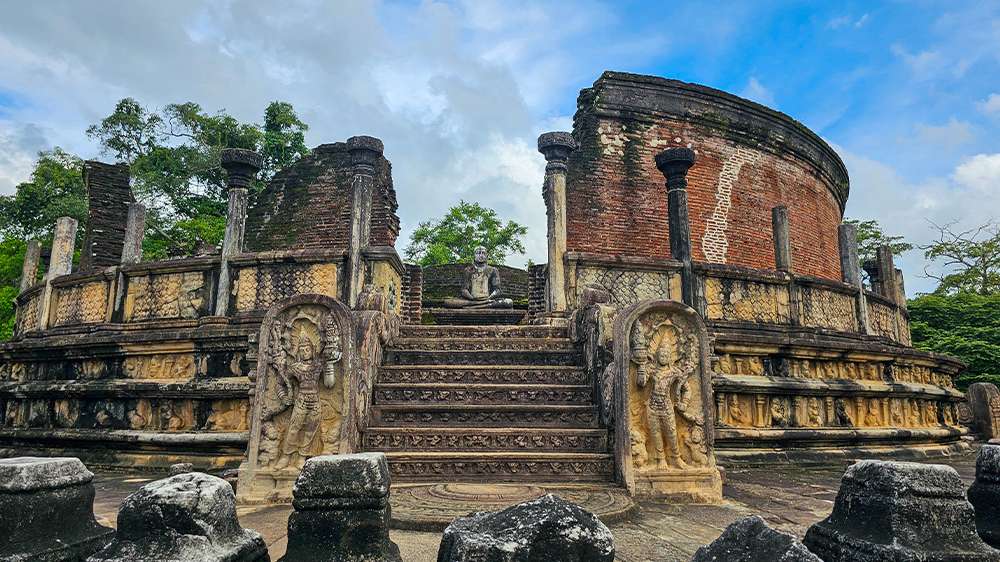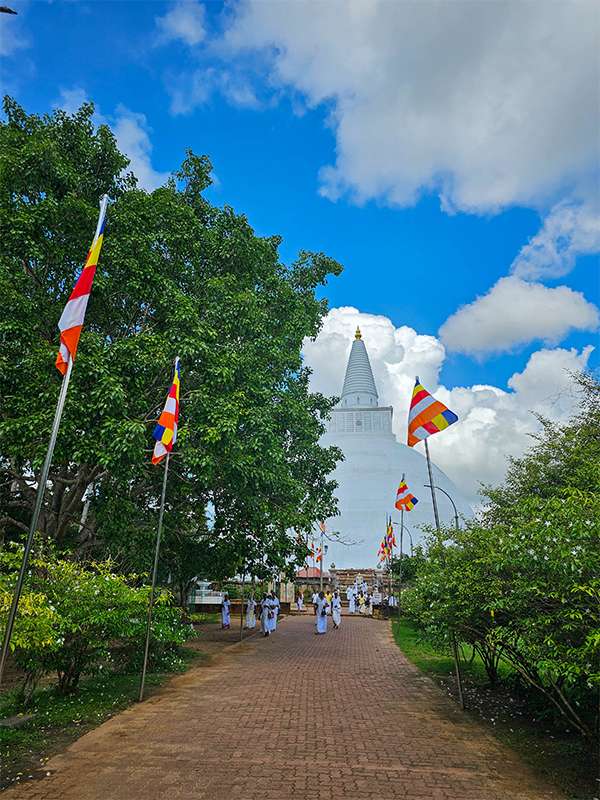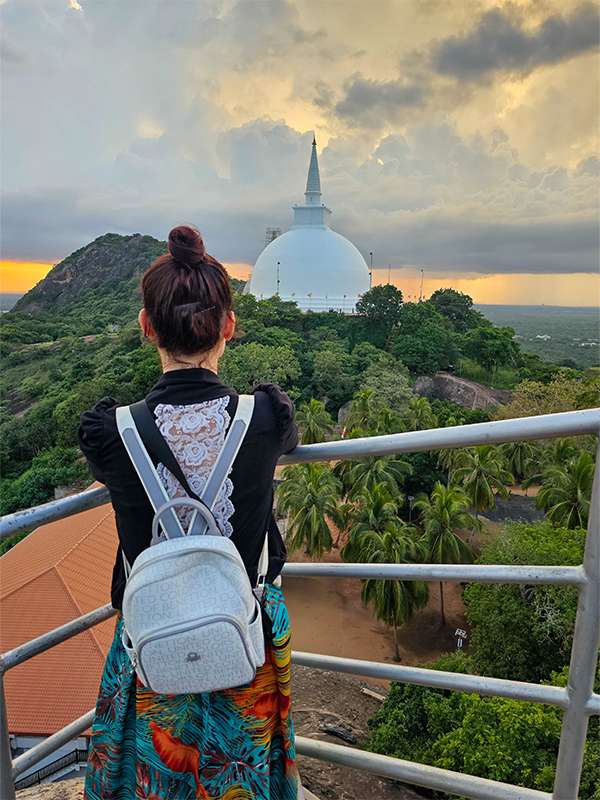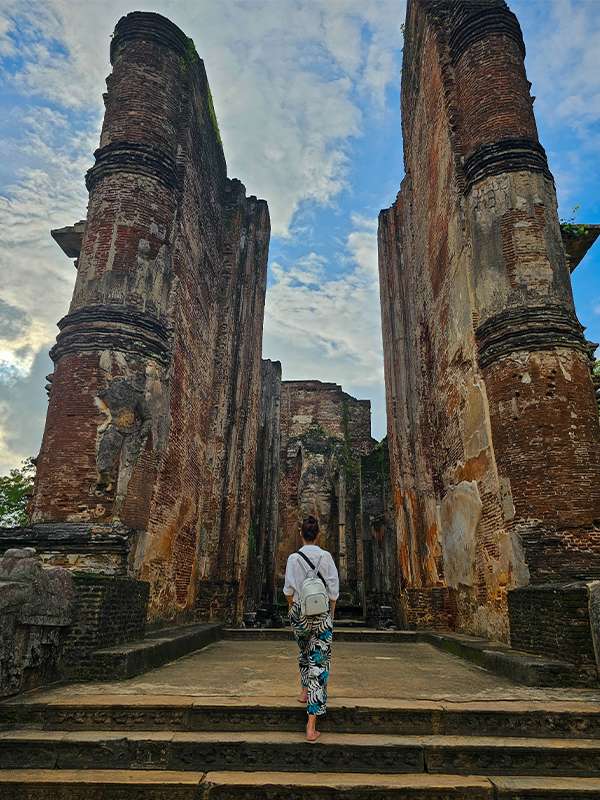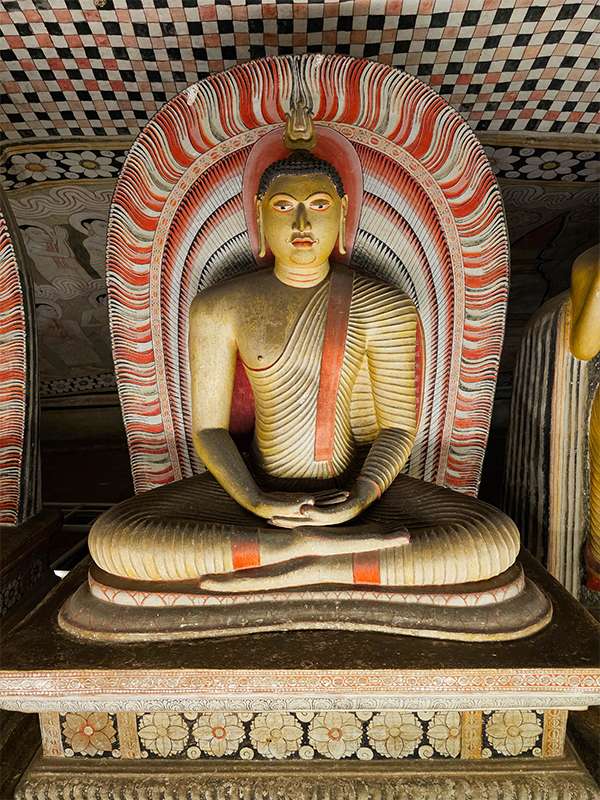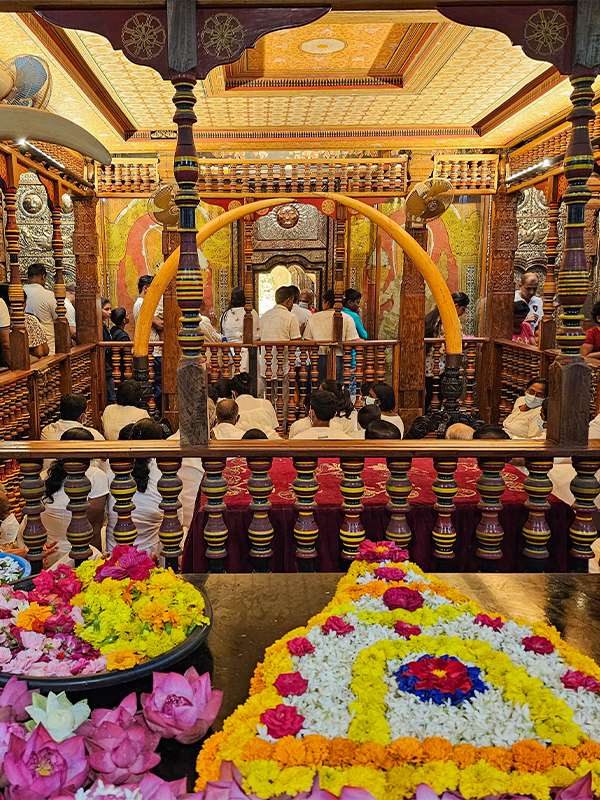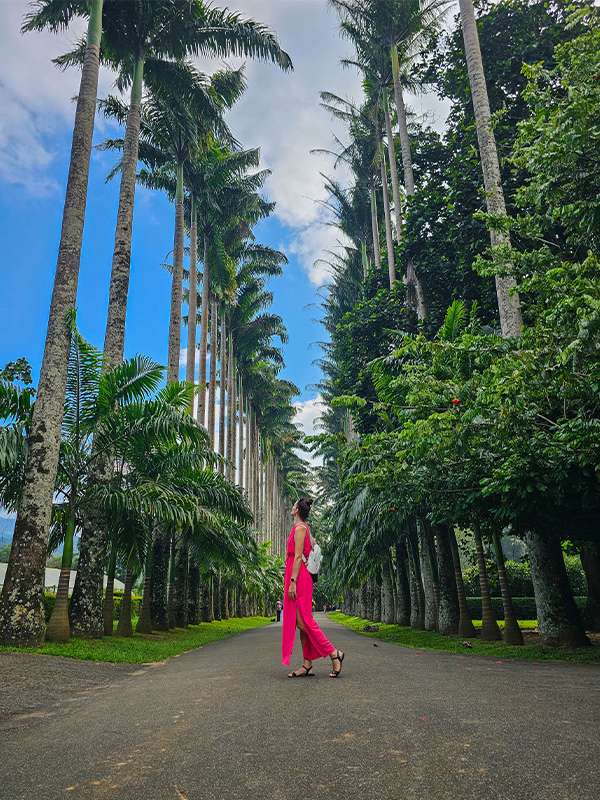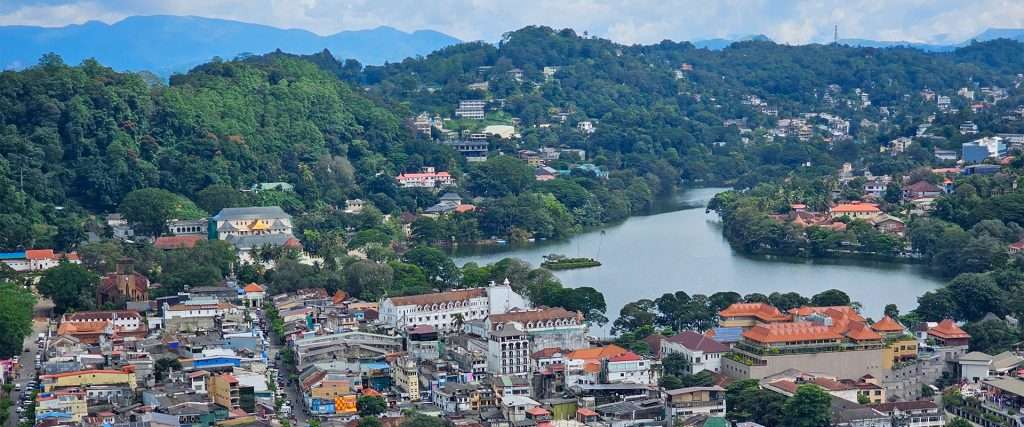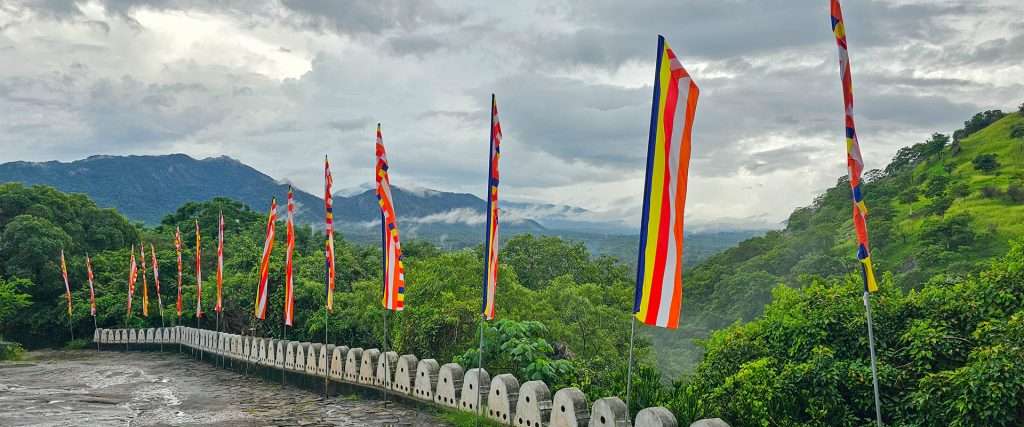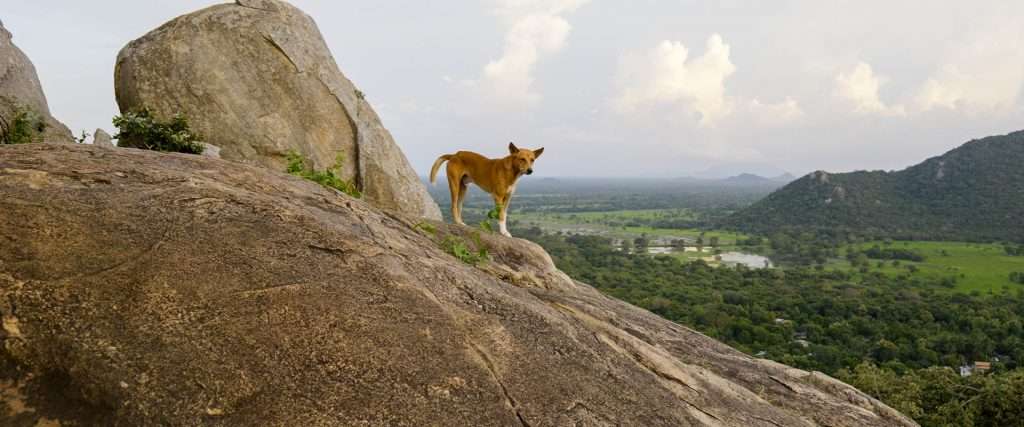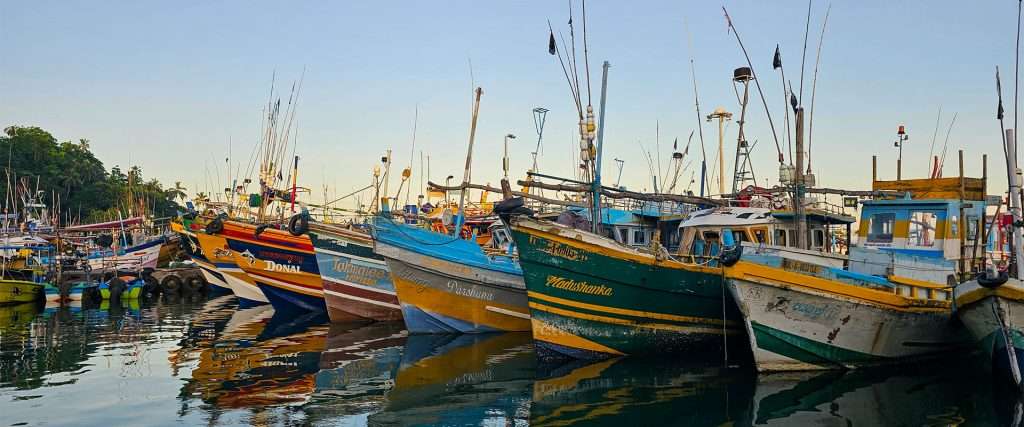The Sri Lanka Cultural Triangle is where the island’s ancient history and rich cultural heritage truly come alive. This region connects the country’s most important historical and spiritual sites — Anuradhapura, Polonnaruwa, Dambulla, Sigiriya, and Kandy — all within a few hours of each other.
Here, you can climb ancient fortresses, explore centuries-old capitals, and visit sacred Buddhist temples that shaped ancient Sri Lanka. You’ll also experience daily life in small rural villages that still carry the island’s traditions forward today. Whether you travel independently or join a guided tour, this Cultural Triangle itinerary helps you see the best highlights in just six days.
Sri Lanka Cultural Triangle at a Glance
Planning a trip through Sri Lanka’s Cultural Triangle? This mini guide shares my personal recommendations to help you plan your route, where to stay, and the best experiences.
Where to Stay in the Cultural Triangle
Anuradhapura: Ancient city & Temples
Sigiriya: Iconic sights & Elephant safari
Kandy: Gateway to the Central Highlands
Things to Do in the Cultural Triangle
- Climb Sigiriya Rock Fortress or hike Pidurangala Rock for sunrise
- Explore the sacred city of Anuradhapura by bike or guided tour
- Discover the ruins of Polonnaruwa (great to explore by bicycle)
- Take a day trip to Dambulla Cave Temple
- Explore Kandy with a guided city tour
Explore my Sri Lanka itinerary to see how the Cultural Triangle fits into a wider trip.
Your 6-Day Sri Lanka Cultural Triangle Itinerary
This itinerary connects the key points of the Cultural Triangle, making it easy to explore the region efficiently.
Planning your route to travel in the Cultural Triangle can feel overwhelming at first. So, to make it simple, I’ve gathered the main highlights. From the sacred city of Anuradhapura and the cave temples of Dambulla to the legendary Sigiriya Rock Fortress and the cultural capital of Kandy.
Get ready for ancient Sri Lankan ruins, golden temples, elephant safaris, and scenic countryside drives. This is the best of Sri Lanka’s history and culture, made easy.
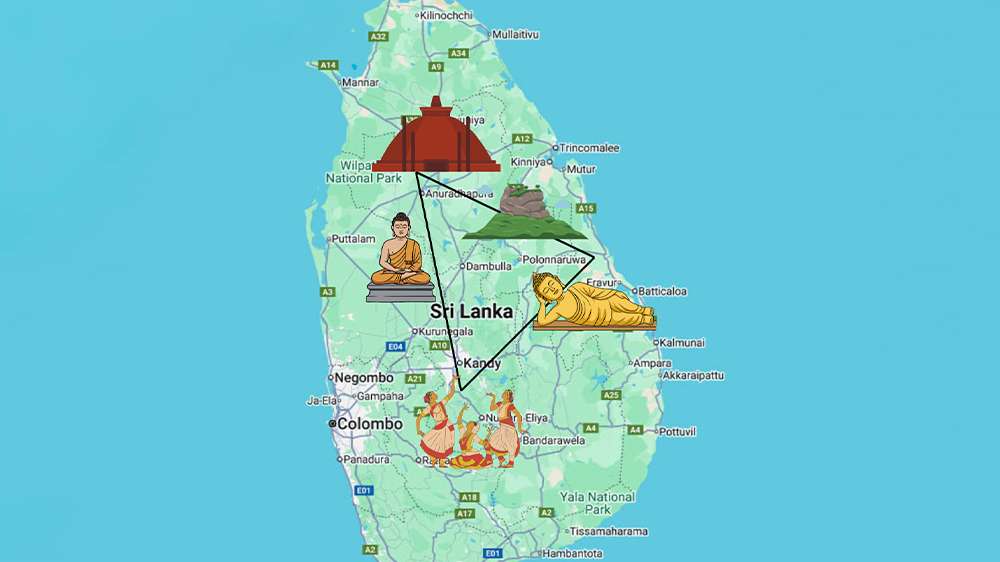
Day 1-2: Anuradhapura & Mihintale – The Birthplace of Buddhism
Anuradhapura, Sri Lanka’s first ancient capital, is filled with temples and monasteries dating back to the 1st century, including some of the earliest sites where Buddhism was introduced to Sri Lanka.
These ancient cities were shaped by powerful Sri Lankan kings during the golden age of Sinhalese culture, leaving behind stupas, monasteries, and vast irrigation systems that still define the landscape today.
You can also visit the legendary Jaya Sri Maha Bodhi tree here (believed to be over 2,300 years old).
We arrived to the town after a long journey from Negombo and spent 1.5 days exploring the ruins and nearby Mihintale, the birthplace of Buddhism in Sri Lanka. Watching the sunset from the Mihintale hilltop was one of our favourite memories.
Read my full Anuradhapura Guide for further details
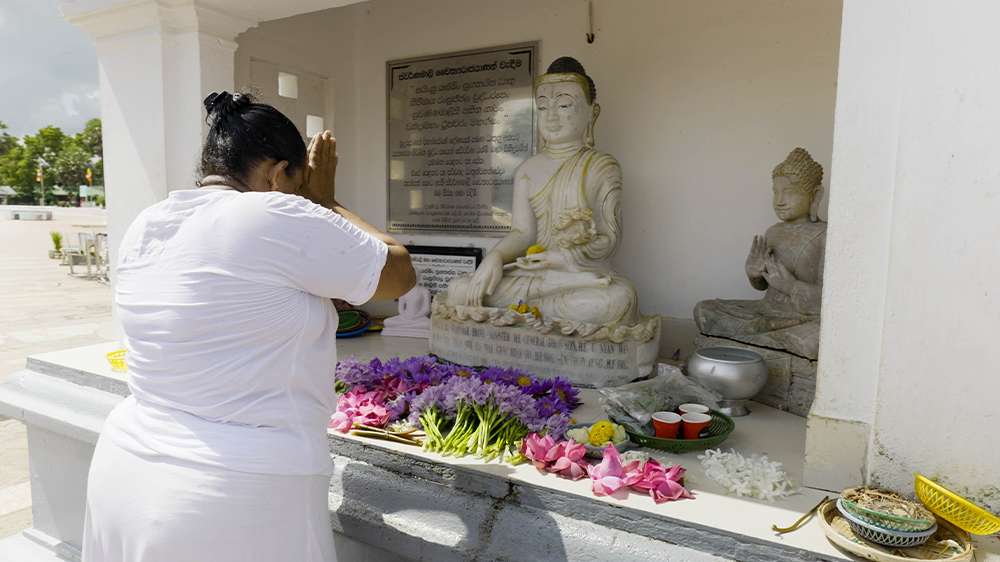
How to Get to Anuradhapura
- By bus or train from Colombo (around 5 hours)
- Tuk-tuks are best for getting around the vast ancient city
Things to Do
- Visit the Sacred City of Anuradhapura, a UNESCO World Heritage Site
- See the Ruwanwelisaya Stupa and Jetavanaramaya, among the world’s tallest brick monuments and Thuparamaya (the oldest stupa in Sri Lanka)
- Visit Mihintale Temple for sunset views – one of the most significant places in the Cultural Triangle
Click here to book your day tour in Anuradhapura
Where to Stay
Stay in a family-run guesthouse near the ancient city. You’ll find warm hospitality and easy access to the main sites.
Day 3–4: Sigiriya, Polonnaruwa & Dambulla – The Heart of the Cultural Triangle
Sigiriya sits at the centre of the Cultural Triangle in central Sri Lanka and is one of the most iconic sites in Sri Lankan history. The famous Lion Rock Fortress, a UNESCO World Heritage Site, rises dramatically above the jungle, offering breathtaking views of the surrounding countryside. From here, you could visit the Dambulla Cave Temples and the ancient city of Polonnaruwa — two must-see points of the triangle nearby.
Read my full Sigiriya Guide for further details
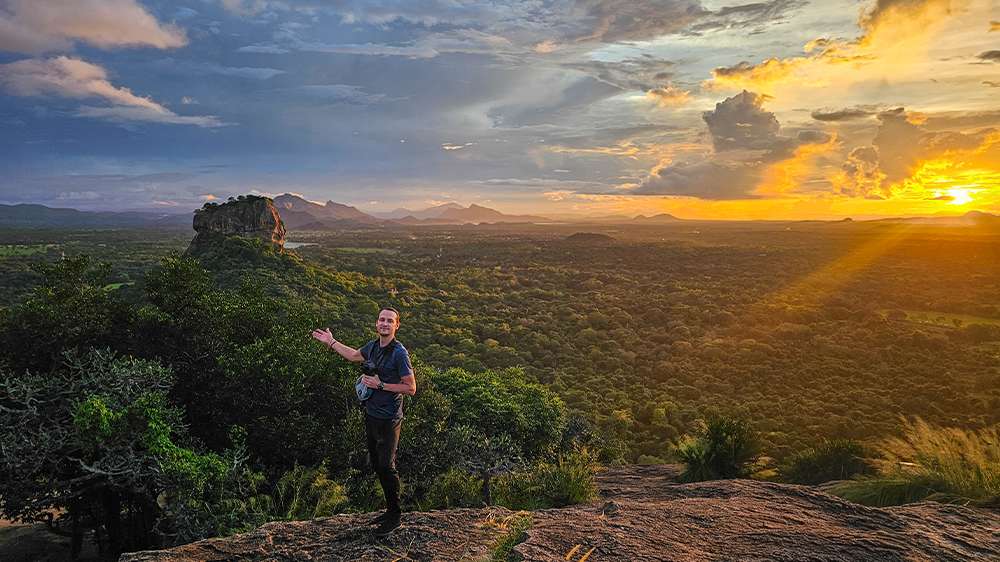
How to Get to Sigiriya
- About 4–5 hours by bus from Anuradhapura via Dambulla, or 2 hours by private transfer
- Hire a tuk-tuk for exploring nearby attractions
Things to Do
- Hike Pidurangala Rock at sunset for views of Sigiriya Lion Rock
- Visit Sigiriya Lion Rock (UNESCO World Heritage Site) to see its frescoes and terraced gardens (visit early in the morning)
- Take a day trip to Polonnaruwa, Sri Lanka’s second ancient capital, and explore by bike
- Visit the Quadrangle, the Royal Palace ruins, and the Gal Vihara Rock temple with its giant Buddha statues
- Explore Dambulla Cave Temple Complex, one of the most remarkable cave temple complexes in Sri Lanka, featuring over 150 Buddha statues and colourful wall paintings
- Eat traditional Sri Lankan cuisine
- Optional: Join an elephant safari in Minneriya National Park
Where to Stay
There’s a great range of places to stay in Sigiriya, from budget guesthouses to boutique lodges surrounded by lush nature. For a bit more comfort, check into Camellia Resort & Spa. It’s one of the most relaxing hotels in Sigiriya, complete with a pool and stunning views of the countryside.
Day 5-6: Kandy – The Cultural Capital of Sri Lanka
At the southern edge of the Cultural Triangle lies Kandy, a city filled with colour, rhythm, and devotion. Set around a peaceful lake, it’s best known for the Temple of the Tooth and its lush botanical gardens — a perfect mix of spirituality and nature.
Read my full Kandy travel guide for more tips and local highlights
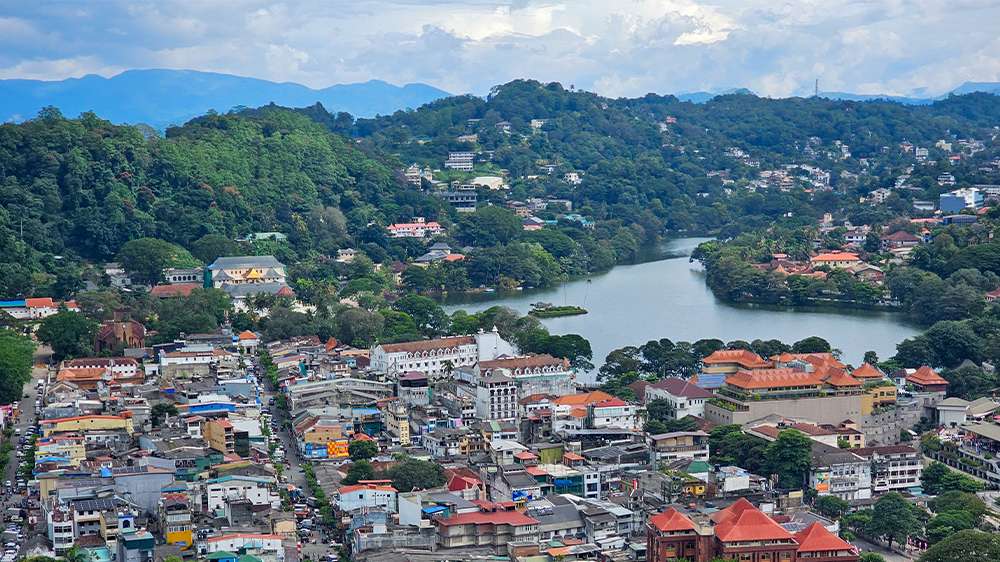
How to Get to Kandy
- About 3 hours from Sigiriya by bus or ~2 hours by car
- Once in the city, use tuk-tuks to get around easily
Things to Do
- Visit the Temple of the Sacred Tooth Relic, one of Sri Lanka’s most sacred Buddhist sites
- Stroll around Kandy Lake and enjoy the peaceful atmosphere
- Explore the Royal Botanical Gardens in Peradeniya
- Climb Ambuluwawa Tower
- Stop by the local market and try Sri Lankan sweets or street food
- Visit Bahiravokanda Big Buddha within the city
- Watch Kandyan Dance Show
Where to Stay
Stay near the lake for easy access to the city’s attractions. Boutique guesthouses and mid-range hotels offer great comfort and scenic views.
6 Days Exploring the Cultural Triangle of Sri Lanka
These are the most important sights in the Cultural Triangle and some of the best places to visit on a trip to Sri Lanka if you want to understand its ancient roots.
From the sacred city of Anuradhapura to the hill country gateway of Kandy, this 6-day route takes you through the central province of Sri Lanka, and its most fascinating historical and spiritual landmarks.
Expect ancient temples, UNESCO sites, and peaceful countryside views — the perfect blend of culture, history, and nature.
Highlights at a Glance
Day 1: Travel to Anuradhapura & catch sunset views from Mihintale
Day 2: Explore Anuradhapura’s ancient ruins & head to Sigiriya
Day 3: Climb Pidurangala Rock for sunrise & visit Polonnaruwa ancient city
Day 4: Visit the Dambulla Cave and travel to your next destination, Kandy
Day 5: Explore Kandy’s Temple of the Tooth and the city centre
Day 6: Visit nearby sights (Ambuluwawa Tower, Royal Botanical Garden and more)
Top Travel Tips for Visiting Sri Lanka’s Cultural Triangle
Planning your visit to the Cultural Triangle? Here are a few key travel tips to help you make the most of your journey through Sri Lanka’s ancient heart.
Best Time to Visit the Cultural Triangle
The region is warm year-round, but the best time to visit is between December and April, during the dry season. Days are sunny, roads are easier to travel, and the skies are perfect for photography.
Avoid the October–November monsoon, when heavy rain can disrupt travel plans or close some sites.
Getting Around the Cultural Triangle
The best way to get around the Cultural Triangle in Sri Lanka is by combining local transport with short transfers between key hubs such as Anuradhapura, Sigiriya or Dambulla, and Kandy.
- Private car and driver: The most convenient option, especially if you’re short on time or want to explore multiple sites in one day
- Local buses: The cheapest way to travel between towns, though they can get crowded and don’t always run on schedule
- Tuk-tuks: Perfect for shorter distances — from your hotel to nearby temples or viewpoints
- Trains: Not available between all Cultural Triangle sites, but you can take one between Colombo and Anuradhapura or from Kandy to the Hill Country
For a complete breakdown of routes and costs, read my detailed guide on getting around Sri Lanka.
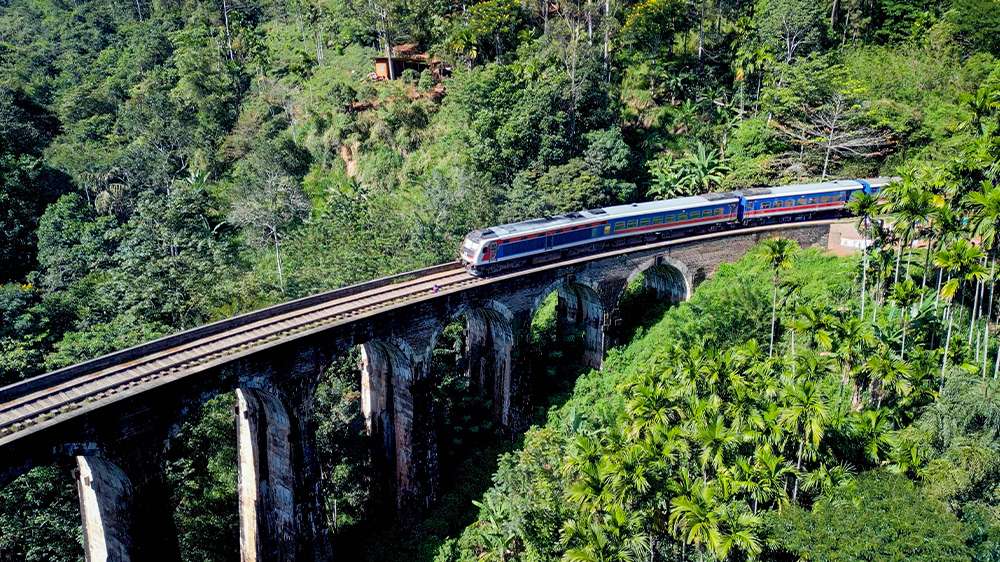
Entrance Fees
Each major UNESCO-listed site within the Cultural Triangle has its own entrance ticket:
- Anuradhapura: $25
- Polonnaruwa: $25
- Sigiriya Lion Rock: $35
- Dambulla Cave Temples: $10
Cultural Etiquette
- Sri Lanka is deeply spiritual, and respect for local customs goes a long way
- Dress modestly when visiting temples (shoulders and knees covered)
- Remove shoes and hats before entering sacred areas
- Avoid turning your back to Buddha statues when taking photos
- Speak quietly inside sacred temples
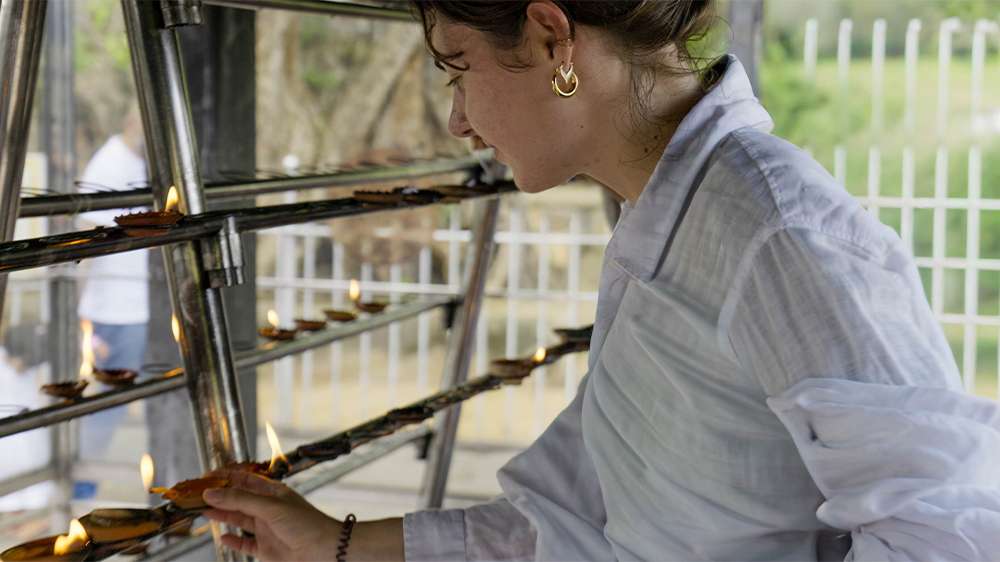
Where to Stay in the Cultural Triangle
- Where you stay depends on how much time you have and what you want to focus on
- If you only have a few days, Sigiriya or Dambulla make the best base. They’re central, close to most major sites, and perfect for day trips to Polonnaruwa and Dambulla Cave Temples
- For a slower pace, Anuradhapura is ideal. It’s quieter, surrounded by ancient ruins, and great for travellers who want to immerse themselves in Sri Lanka’s early history
- End your trip in Kandy, the southern gateway to the Cultural Triangle, for cultural experiences, gardens, and a lively city atmosphere, before heading into the hill country
Photography & Drones
- Early mornings and late afternoons give the best light for ruins and stupas
- Drones are restricted around temples and UNESCO sites
- Always ask before photographing locals
Before You Go
- Stay Connected: Get an Airalo eSIM for instant data when you arrive
- Travel Insurance: Always travel with reliable coverage. We recommend SafetyWing, which protects you against trip delays, medical emergencies, and lost luggage
- Learn a Few Local Phrases: Simple words like Ayubowan (hello) or Stutiyi (thank you) go a long way with locals. Read our Sri Lanka Travel Guide to learn more
- Pack Modestly: Many temples have dress codes, so bring a light scarf or sarong to cover shoulders and knees. Read our packing guide for tips
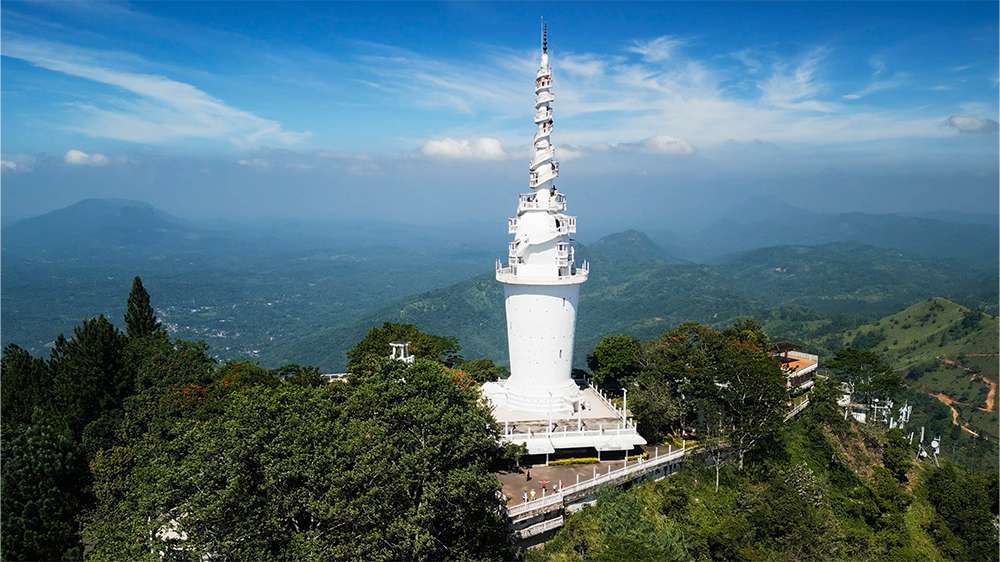
Final Thoughts on Sri Lanka’s Cultural Triangle
Exploring the Cultural Triangle felt like stepping back in time. Every temple, stupa, and ancient ruin tells a story of Sri Lanka’s rich past; one that’s still deeply connected to daily life today. From watching the sunset at Mihintale and climbing Pidurangala Rock to visiting the Temple of the Tooth in Kandy, this region was one of our favourite parts of the trip.
Often called the Cultural Triangle, this region is one of the best places to travel in Sri Lanka if you want to experience ancient history spread across the plains of Sri Lanka.
It’s a place where history, faith, and nature come together beautifully. Even after a month of travelling around Sri Lanka, the memories from this region still stand out. The peaceful temples, the friendly locals, and the sense of timelessness you feel everywhere you go.
Whether you explore independently or join a guided tour, the Cultural Triangle is the perfect starting point for your Sri Lanka trip.
For more inspiration and travel tips, check out my 1-Month Sri Lanka Itinerary and Sri Lanka Travel Guide next.
